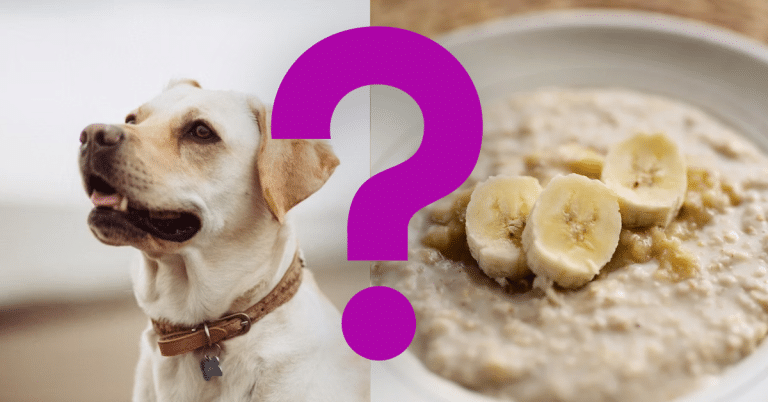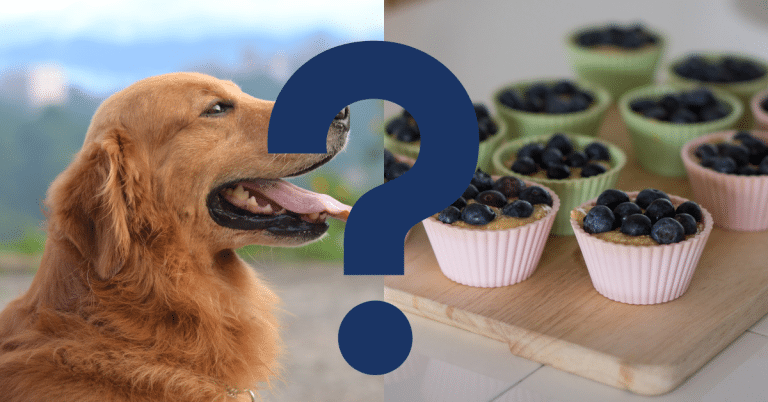Can Dogs Eat Mashed Potatoes? A Vet’s Opinion

Mashed potatoes are yummy, but can you feed Mashed Potatoes to your dog?
Though technically acceptable, mashed potatoes are neither preferred nor advised for dogs. Butter, salt, cream, and other seasonings are frequently used to make mashed potatoes, which may not be suitable for dogs.
Benefits Of Mashed Potatoes For Dogs
While giving mashed potatoes to dogs should generally be avoided or done so sparingly because they are not a natural part of their diet, doing so could have the following benefits:
- Dogs can get their energy from mashed potatoes because they are a good source of carbs. On the other hand, dogs generally require diets high in protein, and their digestive systems are not designed to consume vast amounts of carbs.
- Potatoes, notably mashed potatoes, are a good source of nutritional fiber, which can assist dogs’ healthy digestion. Fibre can encourage regularity and assist in controlling bowel movements.
- Dietary variety: You can give your dog a few mashed potatoes as a treat once in a while to mix up their diet, which some dogs could find pleasant. However, it’s crucial to ensure that the mashed potatoes are free of additional flavors, salt, or butter hazardous to dogs.
- In some instances, feeding dogs simple mashed potatoes might be a safe substitute for other poisonous meals that dogs could be enticed to consume, such as foods heavy in sodium, spices, or other dangerous substances. However, it’s still crucial to exercise caution and make sure that the mashed potatoes are free of any flavors or ingredients that could be dangerous.
While there may be some possible benefits to dogs eating mashed potatoes, it’s vital to keep in mind that they should only be given sparingly and after speaking with your veterinarian to make sure it is secure and suitable for your particular dog’s dietary requirements. The most excellent method to guarantee your dog’s health and wellbeing is to provide them with a balanced, nutritionally complete meal designed especially for dogs.

How To Safely Give Mashed Potatoes To Dogs?
To reduce any potential problems, serving your dog mashed potatoes safely is crucial. Here are some recommendations for properly feeding dogs mashed potatoes:
- Dogs should only consume raw, unsalted mashed potatoes without additional seasonings or additives, such as butter, salt, cream, herbs, or spices. Don’t consume mashed potatoes with additional oils, fats, or other components that can be dangerous to dogs.
- Small portions as an occasional treat: Dogs should only be fed mashed potatoes in small portions as an occasional treat, not as a mainstay of their diet. Dogs’ nutritional demands differ from people’s, so their main diets should consist of balanced, complete dog food designed to meet those needs.
- Please seek advice from your veterinarian: It’s crucial to speak with your veterinarian before feeding your dog any human food or mashed potatoes. They can guide you regarding the safety and suitability of mashed potatoes for your dog’s particular dietary requirements, considering factors such as age, breed, size, and general health.
- Watch out for adverse effects: After giving your dog some mashed potatoes, watch out for any adverse effects your dog may have. Dogs eating human foods like mashed potatoes sometimes have digestive issues, including diarrhea or vomiting. Your dog should not be given mashed potatoes at any time, and you should visit your veterinarian if you observe any unfavorable changes in their health or behavior.
- Avoid toxic elements: Don’t give your dog any mashed potatoes that have any toxic ingredients in them, such as chives, onions, or garlic. Dogs who consume these components may experience significant health problems.
- Portion management If you want to avoid overfeeding your dog and maintain a healthy caloric intake, reduce the number of mashed potatoes you offer to a minimum. Dogs who consume too many calories from human meals risk developing obesity and other health issues.
Remember that while it is conceivable for dogs to consume mashed potatoes, they are not advised or required to do so. Prioritize feeding your dog a balanced, comprehensive diet that satisfies its unique nutritional needs, and consult your vet before giving it any human foods, including mashed potatoes.
Will Mashed Potatoes Make A Dog Sick?
Since carbs are not a typical component of a dog’s diet, mashed potatoes are heavy. Dogs are generally carnivorous creatures; thus, consuming vast amounts of carbohydrates is not best suited for their digestive tract. In some situations, high carbohydrate consumption in dogs can cause digestive problems, such as flatulence and diarrhea. Additionally, excessive consumption of mashed potatoes’ high carbohydrate content can cause weight gain in dogs, which raises their chance of becoming obese and developing related health concerns like joint pain, heart disease, and diabetes.
Added components, including butter, salt, cream, herbs, and spices that might be toxic to dogs, are frequently included in mashed potatoes. These additives can adversely affect dogs’ digestion, salt intake, and other factors. Only raw, unseasoned, ingredient-free mashed potatoes should be given to dogs. It’s critical to check labels and stay away from mashed potatoes that may contain flavors or additions that could be dangerous. Mash potatoes have a soft, gummy texture that increases the risk of choking, especially in dogs who tend to gulp or swallow food without adequately chewing it. Small dogs or dogs with dental problems may find this to be of particular concern. If something with the consistency of mashed potatoes gets stuck in the throat or esophagus, it might cause choking or other breathing problems. This risk can be reduced by giving mashed potatoes to dogs in manageable, tiny portions and keeping an eye on them as they eat.
Sometimes, toxic components like onions, garlic, chives, or other dangerous chemicals can also be found in mashed potatoes. These compounds can be poisonous to dogs and result in significant health problems like anemia and digestive trouble. If mashed potatoes contain any potentially hazardous chemicals, it’s crucial to be aware of them and to avoid giving them to dogs. As always, a veterinarian should be consulted before giving dogs any human food, including mashed potatoes. Veterinarians can provide individualized advice based on your dog’s age, breed, size, and general health to determine whether mashed potatoes are secure and suitable for their unique dietary needs. Additionally, they can offer guidance on proper feeding techniques, portion control, and any dangers that might arise from feeding human foods to dogs.
In conclusion, mashed potatoes may appear to be a safe dog treat, but they can make dogs ill if not administered properly and safely. It’s critical to be knowledgeable about the dangers of feeding mashed potatoes to dogs and to prioritize feeding them balanced, complete dog food that satisfies their unique nutritional needs for general health and wellbeing. If you decide to give your dog mashed potatoes, proceed with caution, adhere to proper feeding procedures, and seek advice from your veterinarian.

Vet’s Summary
In conclusion, while dogs can tolerate mashed potatoes in moderation, their high carbohydrate content, additional ingredients, risk of choking, and the possibility of harmful chemicals can make dogs ill. When introducing mashed potatoes or any other human food to dogs, it’s crucial to seek advice from a veterinarian and adhere to proper feeding procedures. This is especially important when considering dog probiotics because mashed potatoes might not be the best food for dogs. Probiotics are helpful microorganisms that can support a dog’s digestive health, but it’s preferable to select canine-specific probiotic supplements prescribed by a veterinarian. The best strategy to encourage overall digestive health in dogs is to provide them with nutritionally balanced dog food that suits their unique dietary demands. For individualized advice on your dog’s diet, including probiotics, always consult your veterinarian to achieve the best possible health outcomes for your furry buddy.
Mash potatoes might not be the most efficient or trustworthy source of probiotics for dogs, even if they can benefit from probiotics for their digestive health. To ensure consistency and efficacy, probiotics should ideally be taken in controlled and standardized amounts, as is the case with supplements made specifically for dogs. On the other hand, mashed potatoes might not have the right kinds or quantities of helpful bacteria for dogs’ digestive systems to function at their best. Instead of relying on mashed potatoes as a source of probiotics, it’s crucial to prioritize specialized dog probiotic supplements specially designed for dogs and advised by a veterinarian. For individualized advice on your dog’s diet, including probiotics, always consult your veterinarian to achieve the best possible health outcomes for your furry buddy.
Videos To Watch
Should you or should you not feed mashed potatoes to your dog? Watch these videos and find out!






